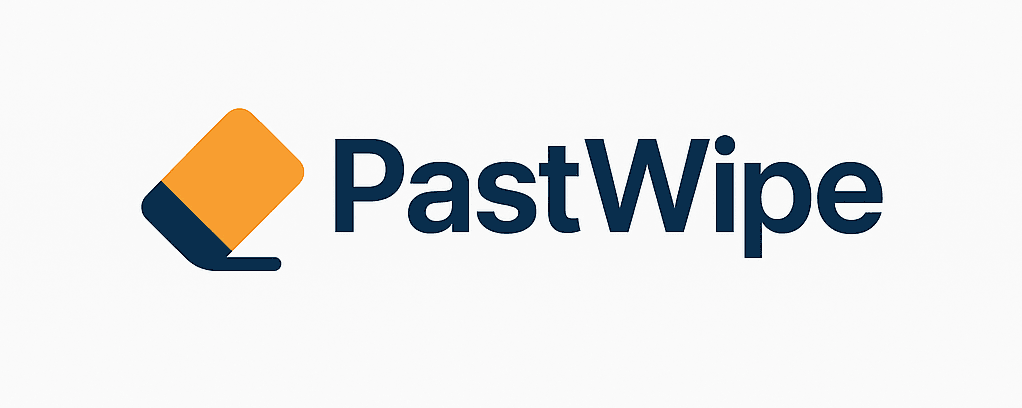
The Death of Browsers, the Rise of AI Search
The End of Browsers: Why the AI-First Era Makes Digital Privacy More Urgent Than Ever
That era is quietly ending.
Typed queries in a bar at the top of a screen no longer define a search. Instead, the next generation of information retrieval is increasingly dominated by AI-driven agents that crawl, predict, and answer — not by showing lists of websites, but by delivering synthesised results, profiles, and judgments about individuals, companies, and institutions.
This shift — from browser-based exploration to AI-native decision-making — is not only inevitable; it is accelerating at breathtaking speed. And with it comes a wave of dangers few are prepared for.
At the heart of this transformation lies a terrifying truth: your digital footprint is no longer just information you shared online. It is now the raw material for automated judgments that will define how governments, HR departments, insurers, banks, and even healthcare providers see you.
In this new world, PastWipe’s mission becomes not just important, but indispensable.
Chapter 1: From Web Pages to AI Profiles
Traditionally, search engines like Google were indexers of web pages. They displayed content that existed online, and while personal data could be found, it still required effort: typing in a name, clicking through results, connecting dots manually.
AI systems don’t work like that. They don’t just retrieve information; they aggregate, analyse, and profile.
- Instead of “showing” your old blog post from 2012, an AI system will summarise your digital reputation in a sentence.
- Instead of listing a dozen forum mentions, it will highlight the worst one and assign it a weight.
- Instead of simply showing “what’s out there,” it will predict who you are, using your digital footprint as training data.
This shift means that your past becomes your future. Old mistakes, outdated opinions, or embarrassing content you thought was forgotten are now baked into the systems that judge your employability, insurability, creditworthiness, or even your right to travel.
And unlike human recruiters or decision-makers, AI has no context, no forgiveness, and no sense of proportion.
Chapter 2: The Expanding Net of AI Profiling
Human Resources and Hiring
In the browser era, HR departments might “Google” a candidate. In the AI era, they will prompt an agent:
- “Summarise all risks associated with Jane Doe as a potential employee.”
The answer won’t be a list of links. It will be a judgment:
- “Jane Doe has a 37% likelihood of reputational risk due to historical mentions in online discussions.”
Imagine applying for a dream job, only to have your application silently discarded because of algorithmic suspicion based on something you never even posted.
Governments and Security
Governments are investing billions into AI-powered surveillance and identity management. Immigration authorities will soon rely on systems that don’t just check documents, but scan the web for behavioural patterns. Did you once comment critically about a foreign policy? Did your photo appear at a protest? An AI agent will know — and flag it.
This isn’t science fiction. China’s Social Credit System already blends financial, legal, and social data into a single profile. Western governments are building their own models, often under the guise of “security” or “fraud prevention.”
Healthcare Systems
Perhaps most alarming is healthcare. AI is now used to assess insurance risk, predict illness, and recommend treatment pathways. That might sound beneficial — until you realise it can also mean:
- Denial of coverage because of an old social media post mentioning depression.
- Higher premiums because you once bought junk food online.
- Limited access to trials or advanced therapies because your digital profile suggests “noncompliance.”
Healthcare should be a human right. Instead, in the AI-first era, it risks becoming another algorithmic judgment based on your digital shadow.
Education and Universities
Universities are increasingly using AI to assess students’ suitability, plagiarism risks, or even behavioural patterns. An outdated blog or a poorly phrased comment can define a young person’s future opportunities.
The irony? The same institutions researching AI are also at risk of feeding biased, incomplete, or toxic data into their systems.
Chapter 3: The Problem Gets Bigger, Not Smaller
Every year, humanity generates more digital content than in all prior centuries combined. The volume of personal data doubles every 18–24 months. But AI doesn’t drown in this flood — it thrives on it.
The more content there is about you — accurate or not, contextualised or not — the more confident AI feels in defining you. That confidence is dangerous because it is not the truth. It is probability dressed up as certainty.
In practice, this means:
- A single photo tagged incorrectly could convince an AI system you were part of a crime.
- A sarcastic comment from 2009 could become evidence of “bias” in a hiring algorithm.
- A data breach exposing an email address could link you to fraudulent activity you never touched.
And because AI results are increasingly trusted without question, contesting these judgments becomes nearly impossible.
This is why the PastWipe mission — to give people the ability to erase, correct, or reclaim their digital identities — grows in urgency every day.
Chapter 4: Why PastWipe Exists
PastWipe was born from a simple but radical belief: digital dignity is a human right.
We saw that as AI reshapes the world, individuals were left with no tools to fight back. While companies have legal teams, governments have policies, and platforms have algorithms, the ordinary citizen has… nothing.
PastWipe changes that.
- We work with individuals to remove harmful content, from mugshots to fake profiles.
- We partner with corporations and institutions to manage digital risk ethically, ensuring fair treatment of employees and applicants.
- We collaborate with universities and specialists to push the frontier of digital ethics research.
But most importantly, PastWipe offers hope: that your past does not have to define your future.
Chapter 5: Building the Future with Universities and Specialists
PastWipe is not just a service. It is a movement.
We are actively collaborating with leading universities, digital ethics scholars, and AI researchers to ensure that the future of profiling is not dictated solely by algorithms but shaped by humanity.
Our partnerships include:
- Research into algorithmic bias: understanding how false associations are formed and how they can be corrected.
- AI transparency studies: advocating for “right to explanation” laws that force systems to reveal how decisions are made.
- Digital rights frameworks: working with legal experts to expand protections for citizens across Europe and beyond.
This collaboration is more than academic. It is the backbone of a new digital social contract.
Chapter 6: The Scary Truth About Tomorrow
Let us imagine a near future — five years from now.
- You apply for a mortgage. Instead of reviewing your income, the bank’s AI agent scans your entire digital footprint and denies your application because of a misinterpreted Reddit post.
- You travel internationally. At border control, your passport is valid, but an AI system flags you as a “moderate risk” due to data leaked years ago in a breach. You are detained without explanation.
- You interview for a job. The recruiter never sees your CV. Their AI dashboard simply displays: “Profile not recommended: 42% reputational risk.”
This is not dystopian speculation. It is the logical endpoint of current trends.
And without intervention — without a system like PastWipe — individuals will have no way to defend themselves.
Chapter 7: Why the Time to Act Is Now
The speed of AI adoption is staggering. According to industry analysts:
- By 2027, over 75% of HR decisions will include AI-powered profiling.
- By 2030, 90% of governments will use AI surveillance or citizen profiling.
- By 2032, health insurers expect to integrate full behavioural digital profiles into risk assessment.
Every year that passes without strong digital rights frameworks makes the situation worse. Data accumulates, systems train on it, and your profile hardens like digital concrete.
PastWipe is building the tools to break that concrete — but we need allies.
Chapter 8: Joining the PastWipe Movement
PastWipe is not just a company. It is a movement for digital dignity.
We invite:
- Governments to partner with us in shaping ethical digital rights frameworks.
- Universities and researchers are invited to join our ongoing collaborations on AI transparency and profiling ethics.
- Corporations to adopt PastWipe solutions, ensuring fairness for their employees, clients, and partners.
- Individuals — everyone with a digital footprint — need to recognise that protecting your past is the first step in securing your future.
Our message is simple: you are more than your data.
Conclusion: A Future Worth Fighting For
The age of browsers is ending. The age of AI profiling has begun.
This shift brings efficiency, innovation, and power — but it also brings danger, inequality, and dehumanisation. Without safeguards, the world risks turning into a place where algorithms define identity, and past mistakes become lifelong sentences.
PastWipe exists to stop that. To build a future where technology serves people, not the other way around.
We believe in a future where:
- People can reclaim their narratives.
- AI systems respect transparency and fairness.
- Digital dignity is a universal right.
The time to act is now. The invitation is open.
Join the PastWipe Movement. Protect your past. Secure your future.
📌 Contact for Media & Partnerships:
PastWipe Press Office
📧 press@pastwipe.com
🌍 www.pastwipe.com
#ArtificialIntelligence #AI #FutureOfWork #DataPrivacy #DigitalRights #CyberSecurity #AIethics #TechTrends #DigitalIdentity #PrivacyMatters #AIsearch #ProfilingAI #AlgorithmicBias #EthicalAI #DigitalDignity #ReputationManagement #RightToBeForgotten #AIRegulation #SurveillanceSociety #HumanCentricAI






